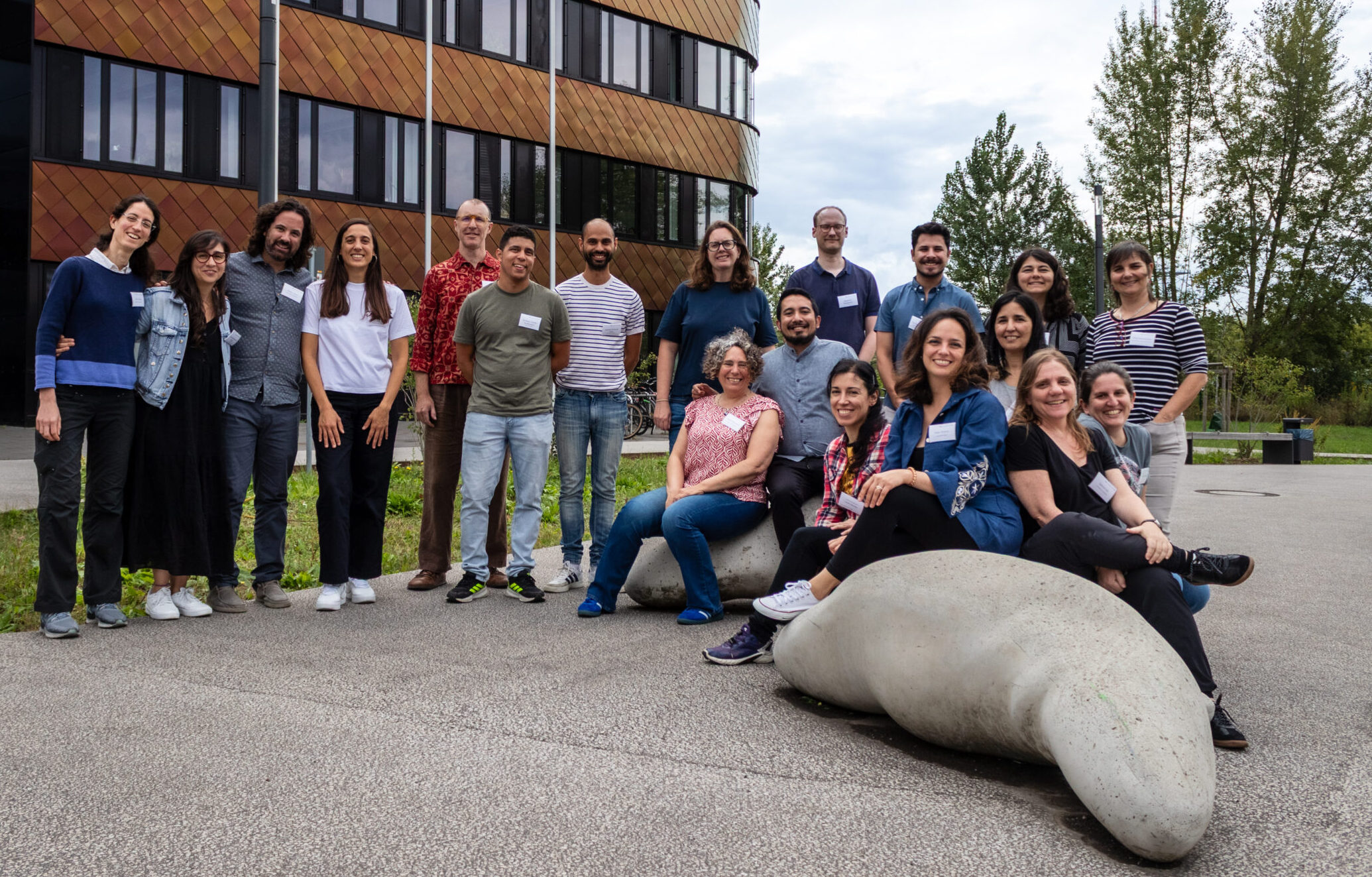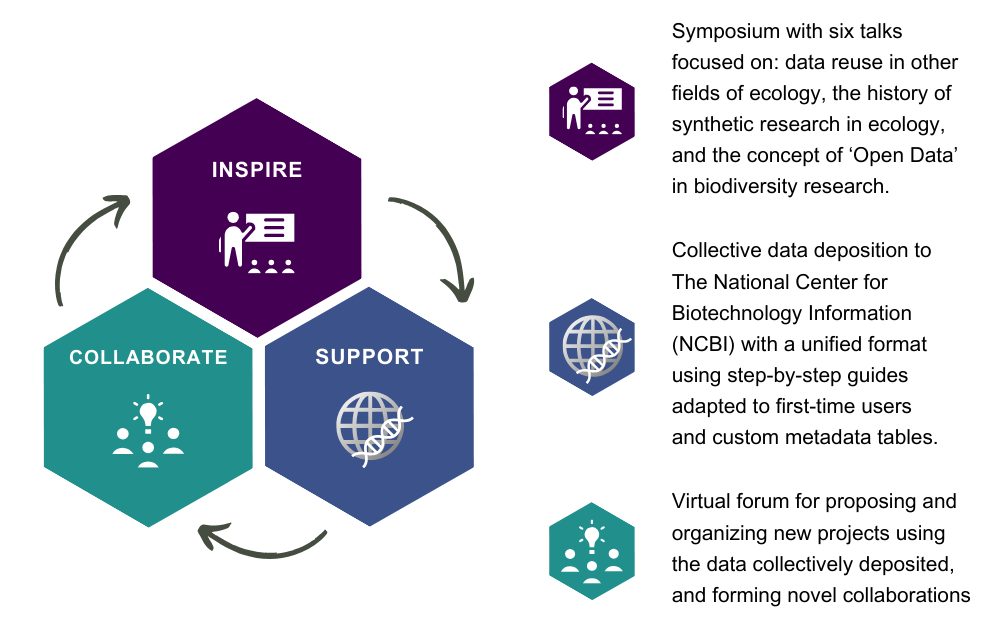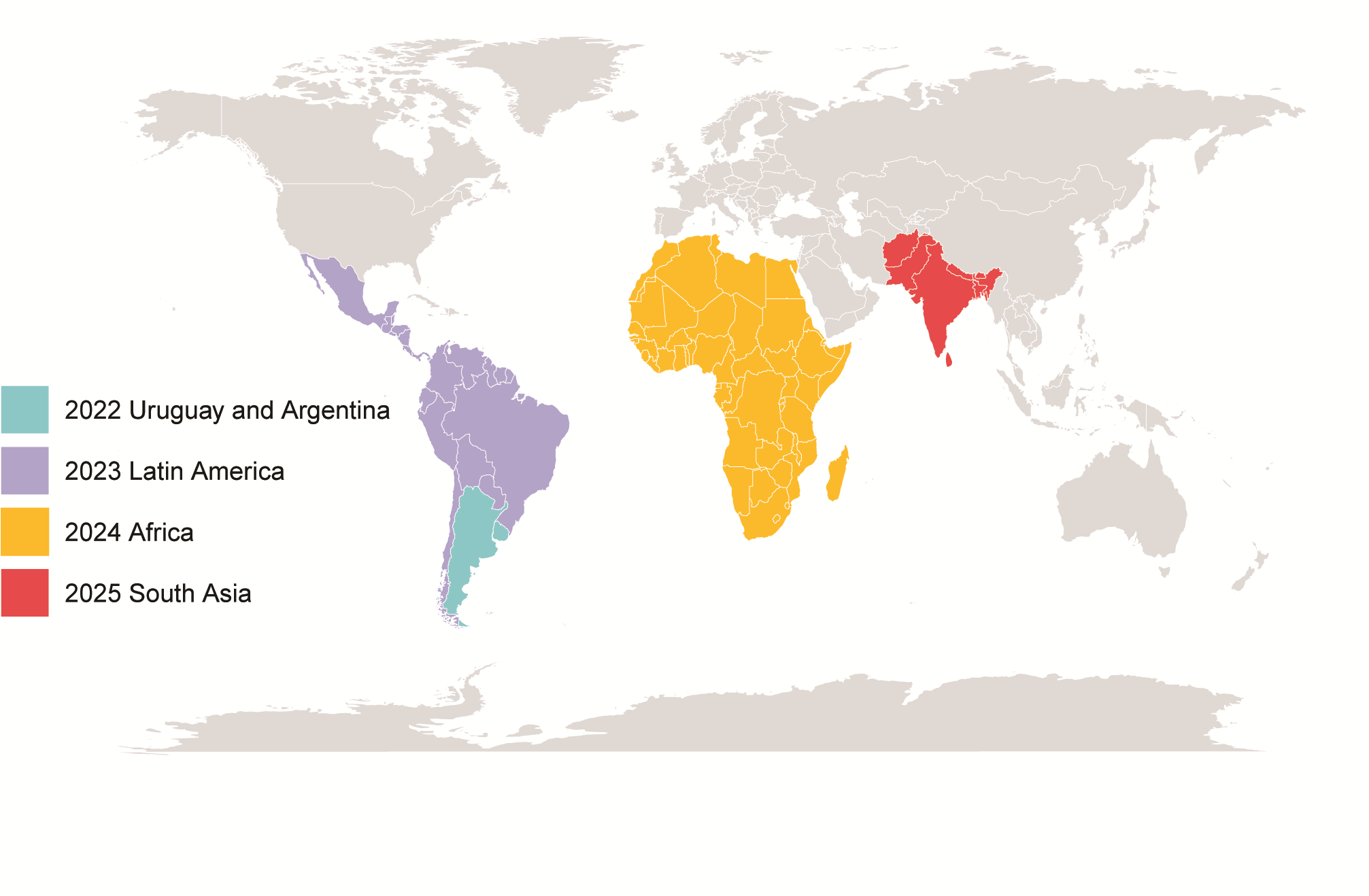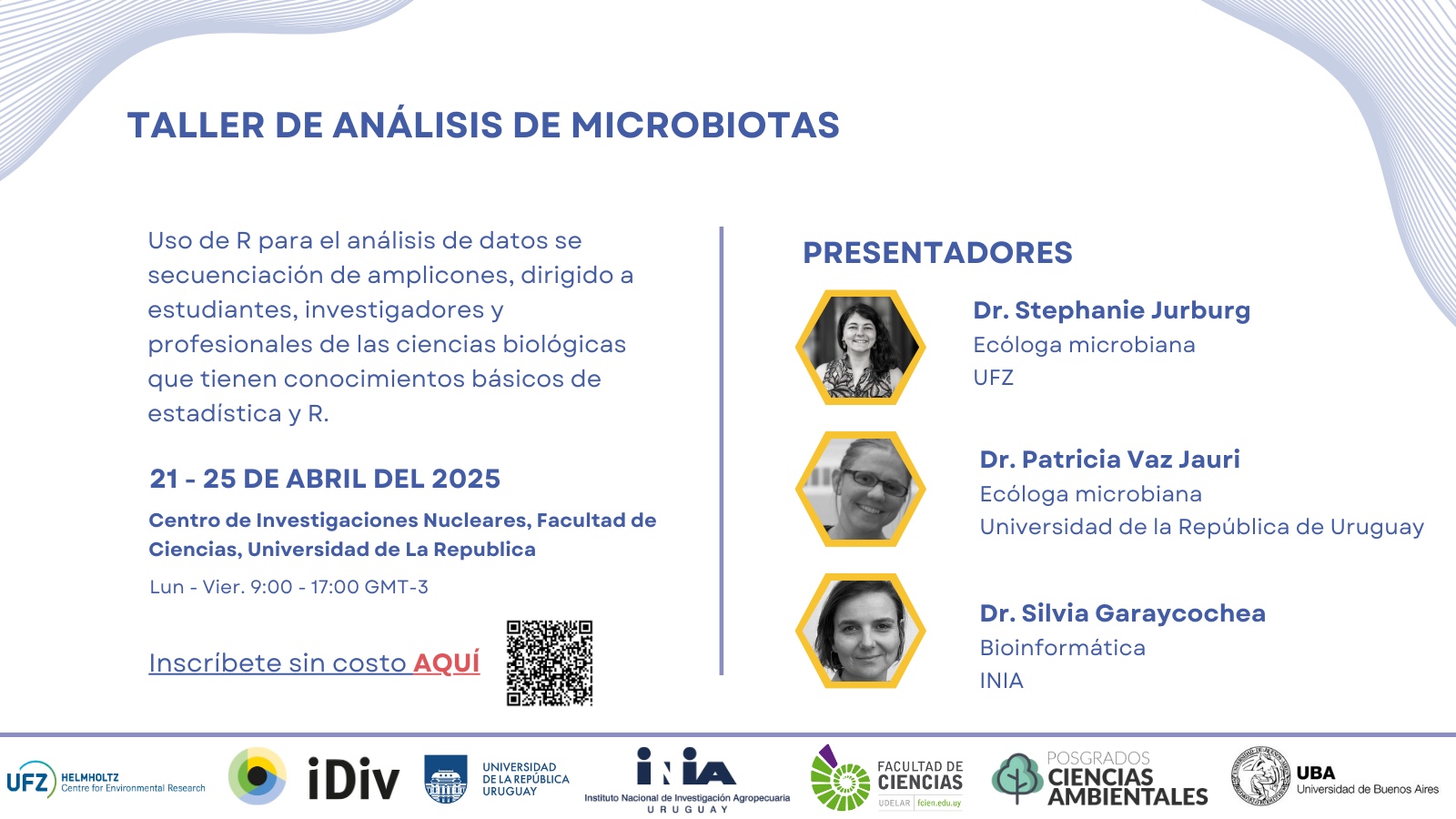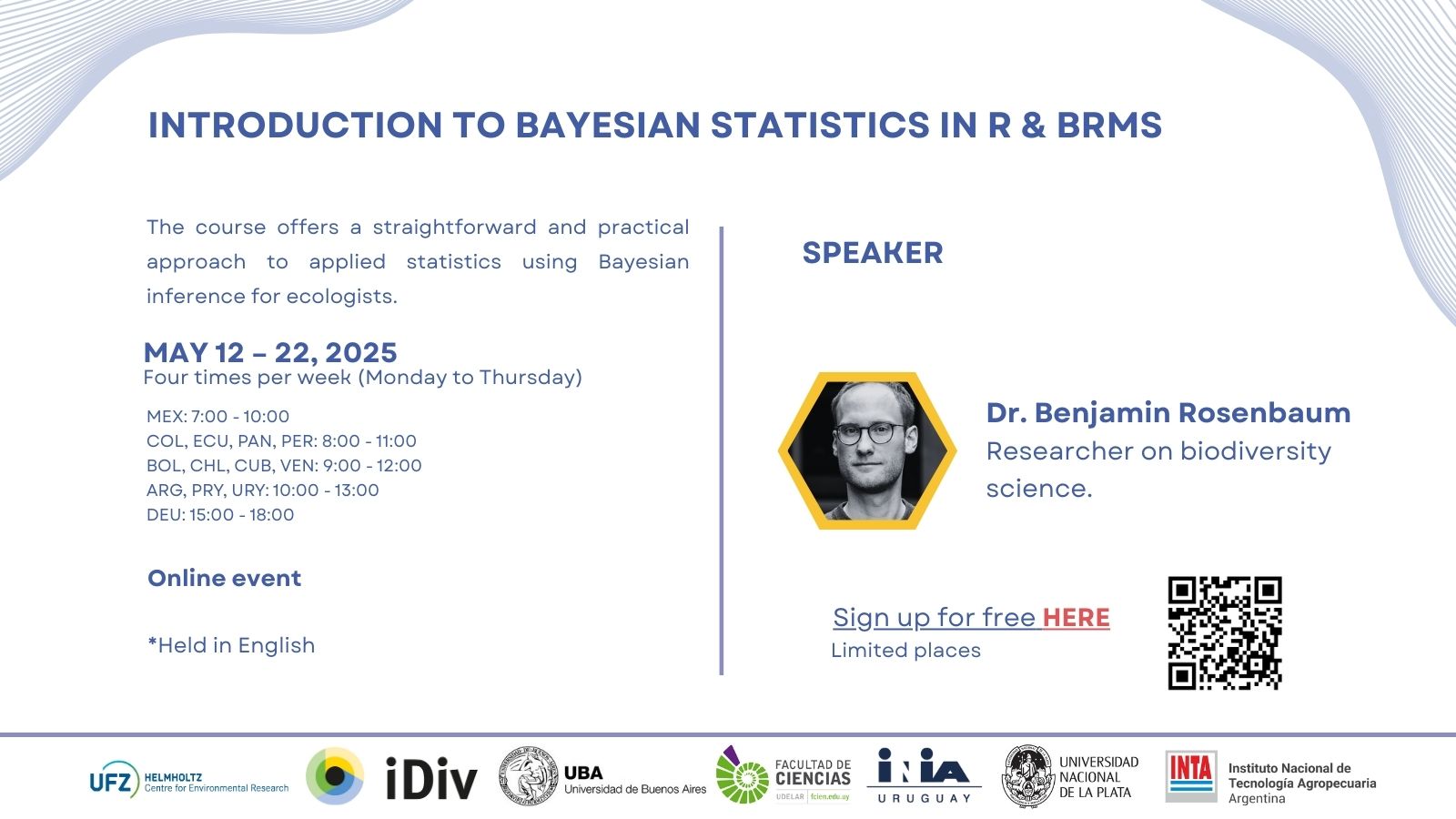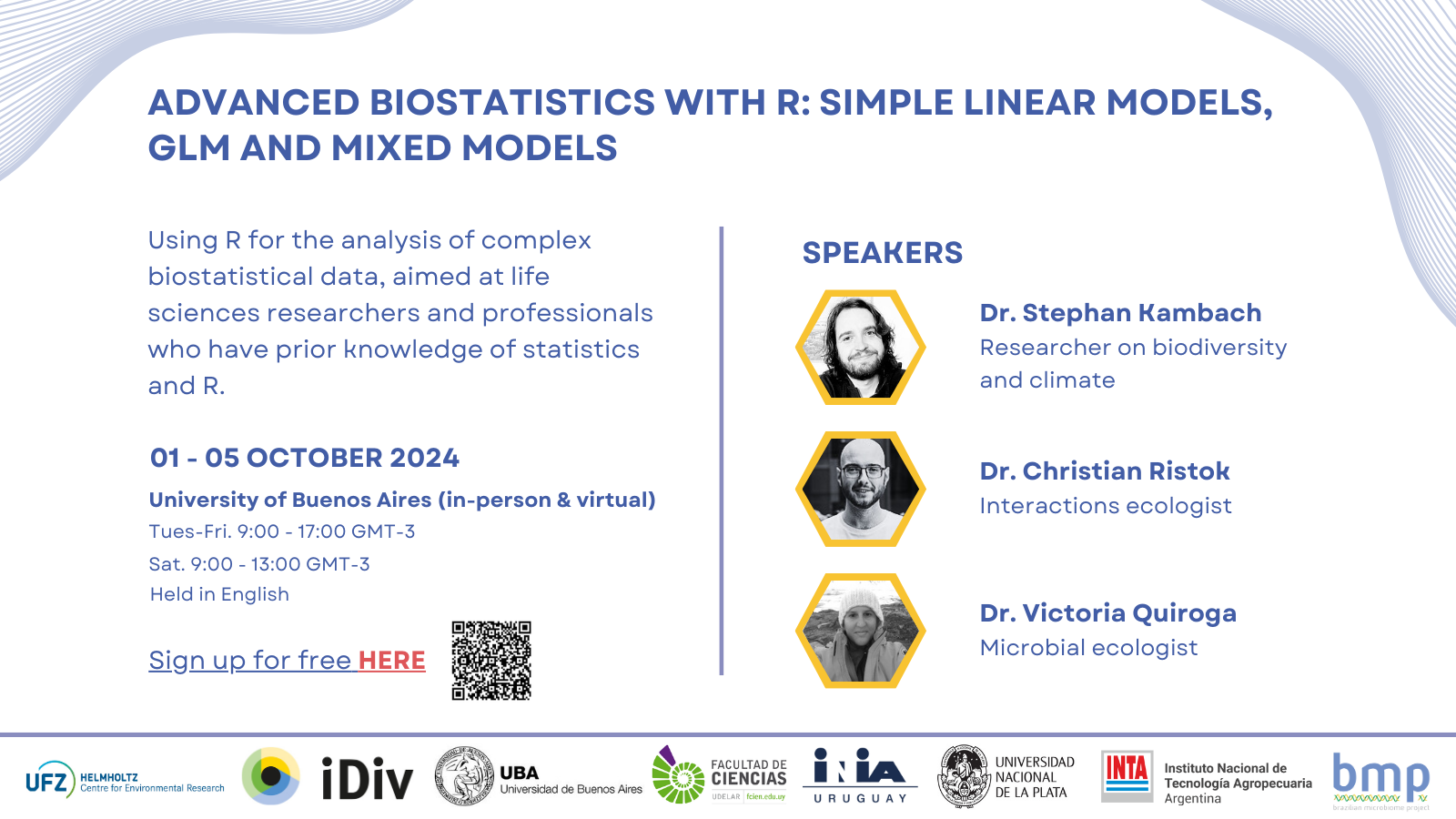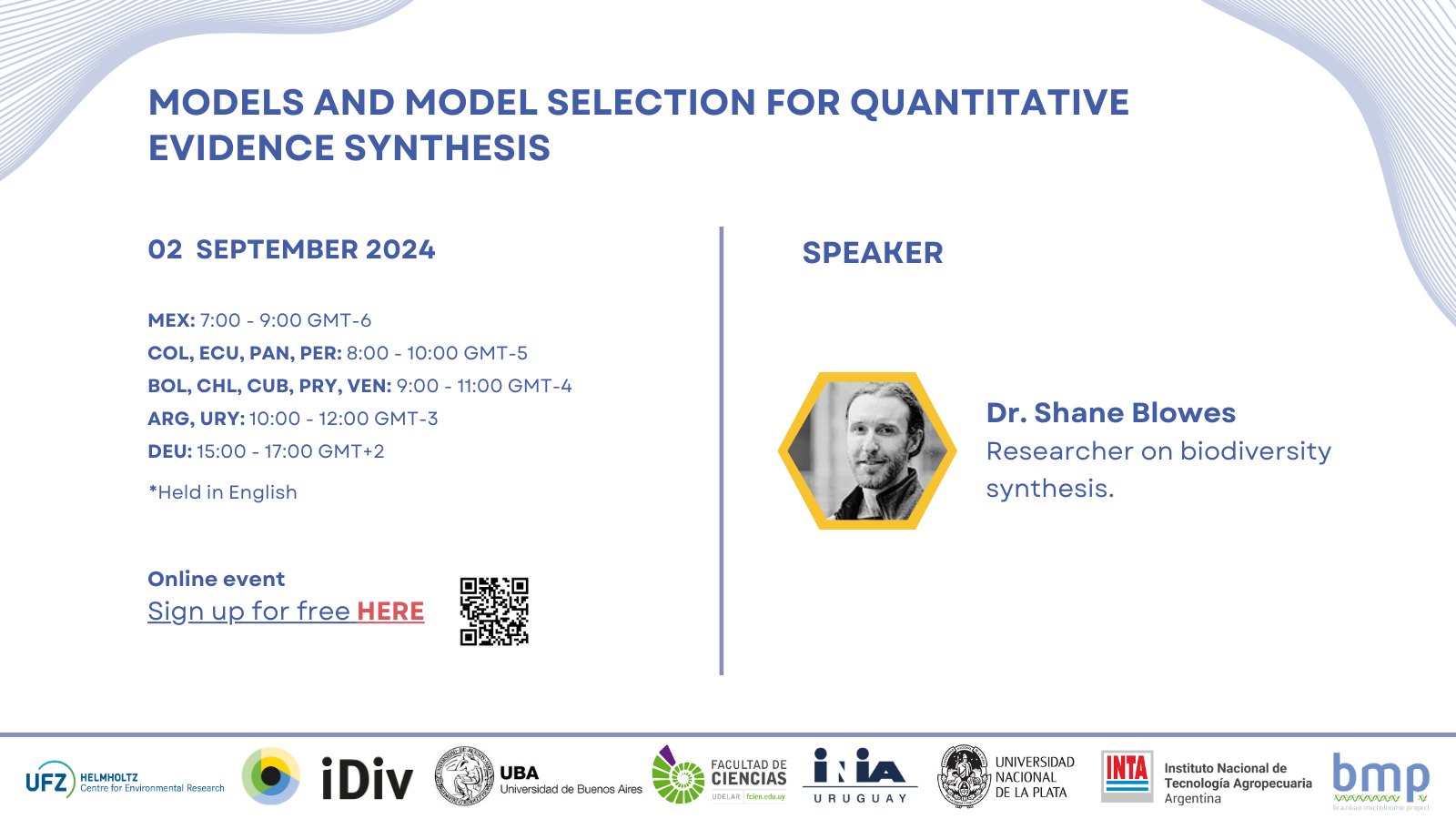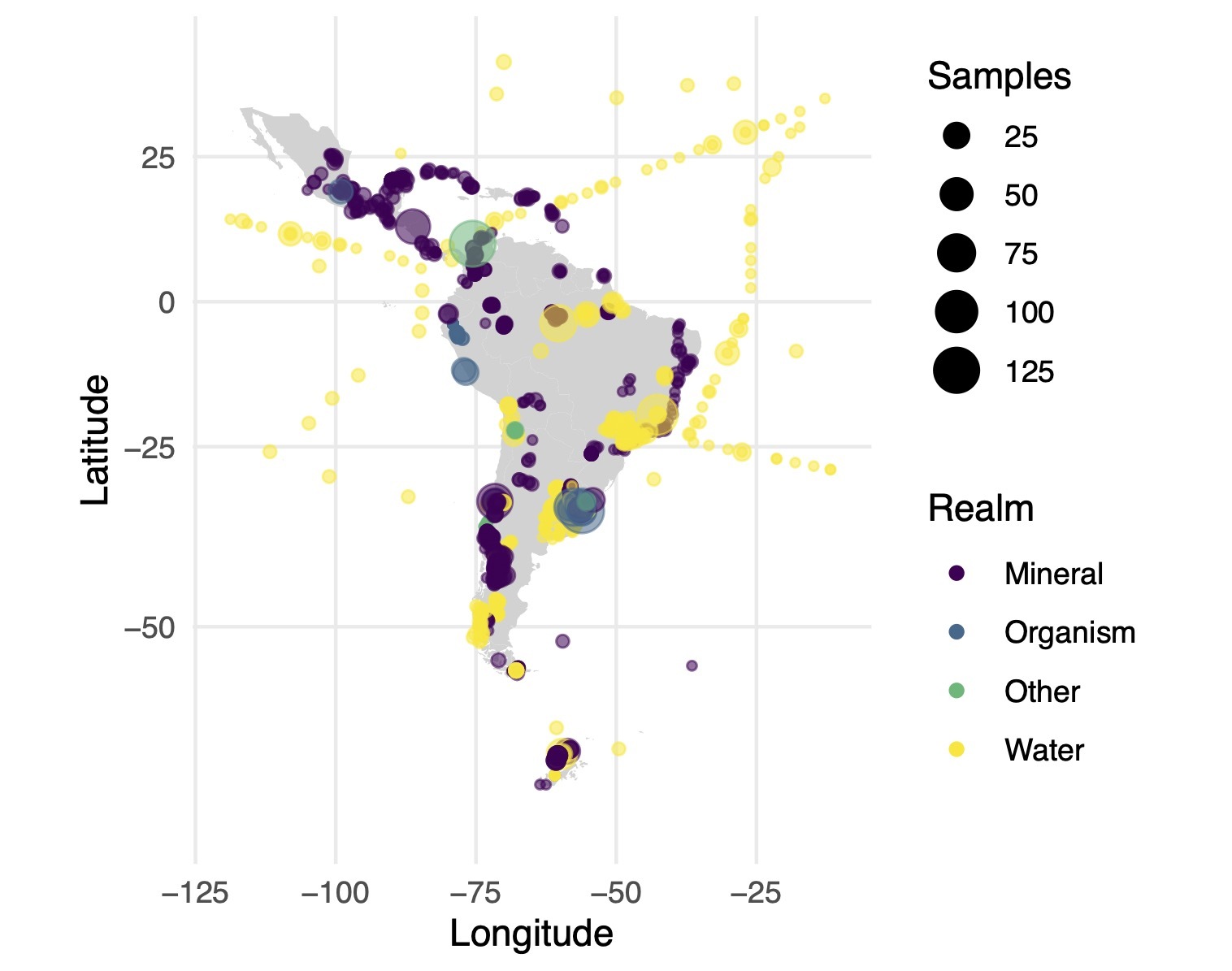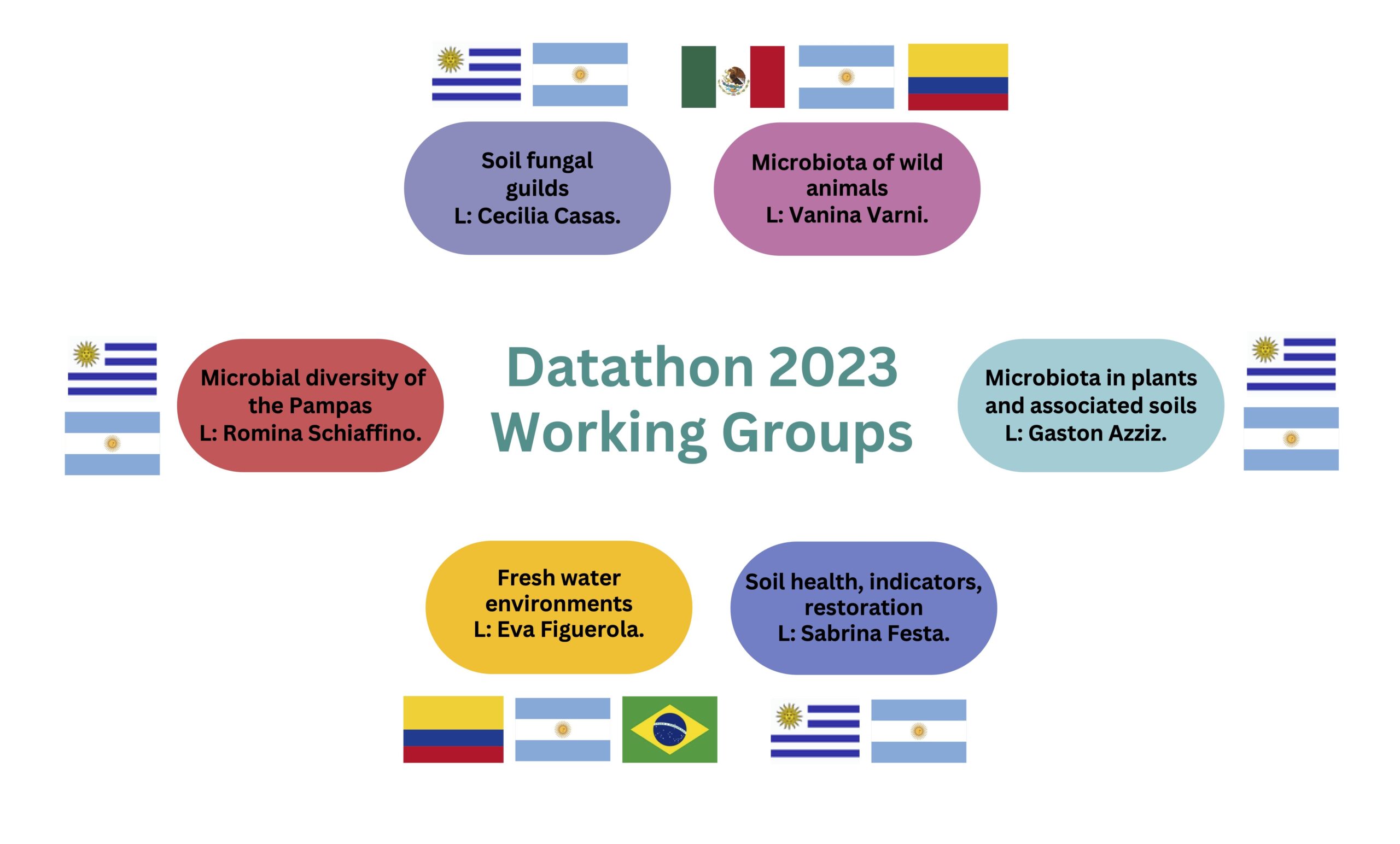sIBTEDS
Illuminating Blindspots Through Equitable Data reuse practices in the global South.
First meeting: 01.-05.09.2025
PIs:
Stephanie Jurburg
Silvia Garaycochea
Eva Figuerola
iDiv Member:
Christian Ristok,
Birgitta Koenig-Ries,
Stephanie Jurburg
Project summary:
To further equitability in microbiome data reuse and illuminate blindspots in microbial diversity sIBTEDs will organize data archiving workshops and data reuse trainings in Latin America and Sub-Saharan Africa, and support Latin American researchers as they examine the large-scale distribution of soil microbes in South America, particularly in the face of land use change. Together, these activities will greatly increase the amount of both publicly available microbiome data and microbiome synthesis research produced in the Global South.
Participants:
Clara Maria Arboleda Baena (iDiv), Gastón Azziz (Universidad de la República), Shane Blowes (iDiv), Cecilia Casas (Universidad de Buenos Aires), Santiago Castillo Rivadeneira (Leipzig University), Sabrina Festa (Center for Research and Development of Industrial Fermentations ), Eva Figuerola (University of Buenos Aires), Silvia Garaycochea (National Insitute of Agrocultural Research), Gaby Gnecco (Julius Kühn Institut), Francisco Maximiliano González Serrano (National Autonomous University of Mexico), Stephanie Jurburg (UFZ), Esteban Emanuel Nieto (University of Thessaly), María Victoria Quiroga (INTECH. CONICET-UNSAM), Benjamin Rosenbaum (iDiv), Analia Sannazzaro (INTECH. CONICET-UNSAM), Enrique Soto (National Autonomous University of Mexico), Kimberly Thompson (iDiv), Vanina Varni (Luján National University), Patricia Vaz (Universidad de la República)
sIBTEDS working group meeting, September 2025
Microbes are diverse, ubiquitous, and central to the functioning of all ecosystems. This knowledge is owed to the past three decades of advancements in sequencing technologies, which have allowed scientists to study microbes impossible to isolate or observe directly. However, the high cost of sequencing and the computational equipment needed to process sequence data have slowed the documentation, analysis, and reanalysis of microbes in underrepresented regions. Our goal with sIBTEDs is to ‘close the data loop’ by providing data producers with a real opportunity to benefit from the archived data through training in data reuse.
The sIBTEDs project idea was conceived during the first Datathon event, a three-day initiative designed to train researchers in sequence data archiving, inspire them to reuse existing data, and form collaborative networks to execute these projects. This event was held in Uruguay and Argentina in 2022 and was facilitated by an iDiv internal Flexpool project, with funding from the Uruguayan Agencia Nacional de Investigacion e Innovacion. Since then, Datathons have been held yearly, targeting Latin America in 2023, Africa in 2024, and South Asia in 2025. The iDiv internal Flexpool Support Fund provides iDiv members up to 10k€ in consumables for research activities and project ideas that lack funding. It’s a fantastic opportunity to work on smaller research activities and to push projects (e.g., via student helpers and funding extended visits of external collaborators).
sIBTEDS Datathon 2023 Organization
The 2022 Datathon resulted in the formation of a collaborative network led by Dr. Garaycochea, Dr. Figuerola, and Dr. Jurburg, to develop the sDiv sIBTEDs project as a full synthesis project proposal for sDiv. The primary aim and key outcome of the project was to focus on capacity building among researchers in Latin America. sIBTEDs draws from the participant pools of the 2022 and 2023 Datathons, which now include over 300 microbial ecologists. The program advertises training and exchange opportunities in a monthly newsletter. It is supported by a student helper and available funds, which are used to send trainers to Latin America and bring Latin American researchers to iDiv, where they receive support in finalizing complex synthesis projects.
sIBTEDS Datathon Map Schedule
We submitted the project proposal to the 11th sDiv call and, out of 28 applications, we were successfully funded as a SynFlex project. sIBTEDS is a rather unique sDiv project, because it includes 2-year funding for a student helper who supports organizing Datathons in Latin America, and travel support for iDiv researchers visiting Latin America, as well as for Latin American researchers visiting iDiv. Additionally, we advertised the possibility of applying for a sIBTEDs-associated sDiv synthesis postdoc project. In this specific synthesis postdoc call, sDiv offered all active sDiv synthesis projects to apply for additional postdoc support. The successful joint application from Dr. Clara Arboleda Baena and the sIBTEDS PIs resulted in her joining the project to perform major syntheses of the data collected during the Datathons, and to coordinate the synthesis working groups formed during the Datathons.
The Microbial Community Database (MiCoDa, https://micoda.idiv.de), created together with Anahita Kazem and Birgitta Koenig-Ries from the iDiv Biodiversity Informatics Unit is key to lowering the barriers to data reuse. The database allows participants to reuse data from a pre-curated and pre-processed database containing more than 30,000 microbiome samples from around the world. As Datathons reduce biodiversity blindspots in microbial ecology, the archived data will be integrated into MiCoDa, facilitating data reuse by researchers regardless of their access to computational facilities.
The sIBTEDs project started in early 2024, with Dr. Clara Arboleda-Baena as an associated postdoc and Santiago Castillo Rivadeneira as our student helper, community organizer and data curator. The project is already very successful. Since the beginning of 2024, sIBTEDs has been creating monthly newsletters that allow Latin American researchers to exchange opportunities and news, strengthening local research networks. Since September, sIBTEDs began offering monthly training events in various formats, including virtual lectures and in-person training by Latin American and German researchers.
Microbiota Analysis Workshop
sIBTEDS Bayesian Statistics Introduction
sIBTEDS Talk Biostatistics
sIBTEDS Talk Model Selection
Together, the first two Datathons have consolidated approximately 7,000 samples from Latin American metabarcoding projects and resulted in 6 virtual working groups focusing on different synthesis questions that emerged during the Datathon’s brainstorming sessions. In 2025, members of these working groups will be welcomed at iDiv to finalize their synthesis projects with support from iDiv researchers.
sIBTEDS Datathon 2023 Graphic
sIBTEDS Datahon 2023 Working Groups
